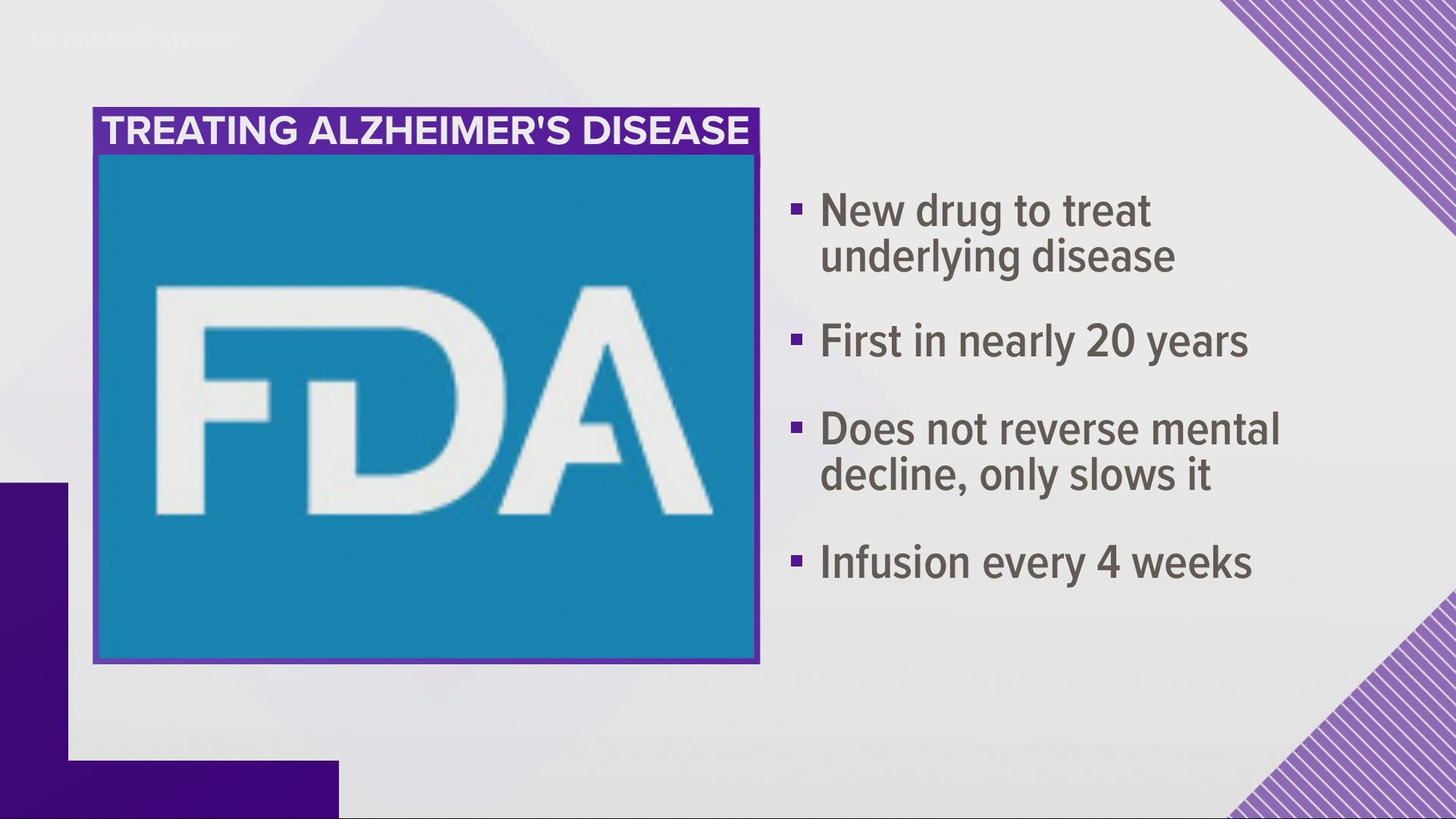WASHINGTON — The FDA approved aducanumab, a drug for treating Alzheimer's disease, Monday under its Accelerated Approval Program.
According to the Food and Drug Administration, the drug is the "first novel therapy" to be approved for Alzheimer's disease since 2003 and the first treatment directed at the underlying pathophysiology of the disease.
In other words, it would be the first drug approved and sold as a means to slow the progression of Alzheimer's, not just ease symptoms, according to The Washington Post.
The company filed for a Biologics License Application in July 2020. According to Biogen, the FDA initially was set to make its ruling in March; but in January the company said the FDA extended its review period for the drug until June.
The accumulation of the protein in a person's brain is suspected to be a potential cause of Alzheimer's, according to the Alzheimer's Association. The "sticky" plaque is believed to damage communication between brain cells, eventually killing them.
According to Biogen, aducanumab removes the amyloid-beta peptide-protein from an Alzheimer's patient's brain, which has shown in clinical trials to reduce the clinical decline of the disease.
However, the drug is not without controversy.
In 2019, the company suspended two of its late-stage trials for the drug, citing the evidence in the trials was "unlikely to meet their primary endpoint." Additionally, two large trials run by Biogen appeared to have contradictory results, one showing the drug slowed patients' decline by 22 percent over 18 months while the other showed it was overall ineffective, Bloomberg said.
And, an FDA advisory panel of medical experts has already rejected aducanumab, according to Bloomberg.
Still, the treatment is "passionately" supported by patients and advocacy groups despite the advisory panel rejection, according to The Post.
The Washington Post, citing drug analysts, says aducanumab, an intravenous treatment, could cost up to $50,000-a-year per patient. And, the treatment doesn't cure the disease.
RELATED: Their 12-year-old has childhood 'Alzheimer's.' $3 million is their only hope for saving him.
What other people are reading right now:
- Find a Lightning watch party for Game 3 against Carolina
- Doctors treating more viruses in children as COVID restrictions ease
- President Biden tasks VP Harris to lead Dems in voting rights bill push in Congress
- The history of naming tropical systems
- What can I get tax-free during Florida's Disaster Preparedness Sales Tax Holiday?
►Breaking news and weather alerts: Get the free 10 Tampa Bay app
►Stay In the Know! Sign up now for the Brightside Blend Newsletter

